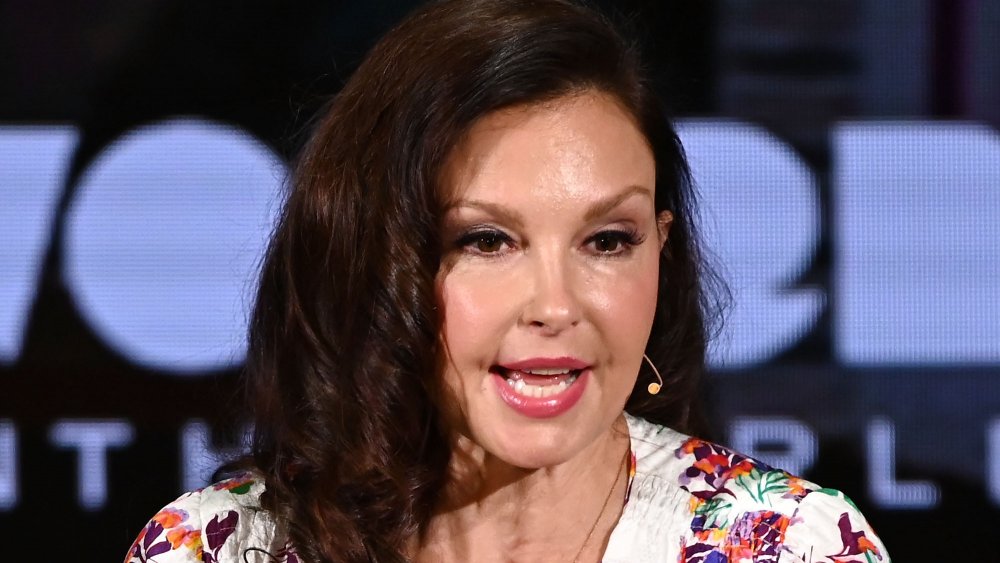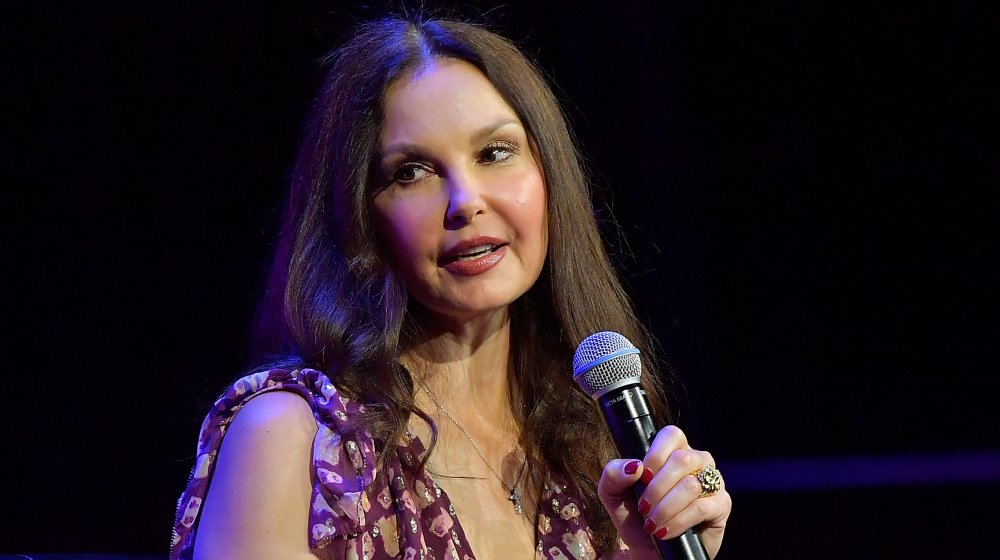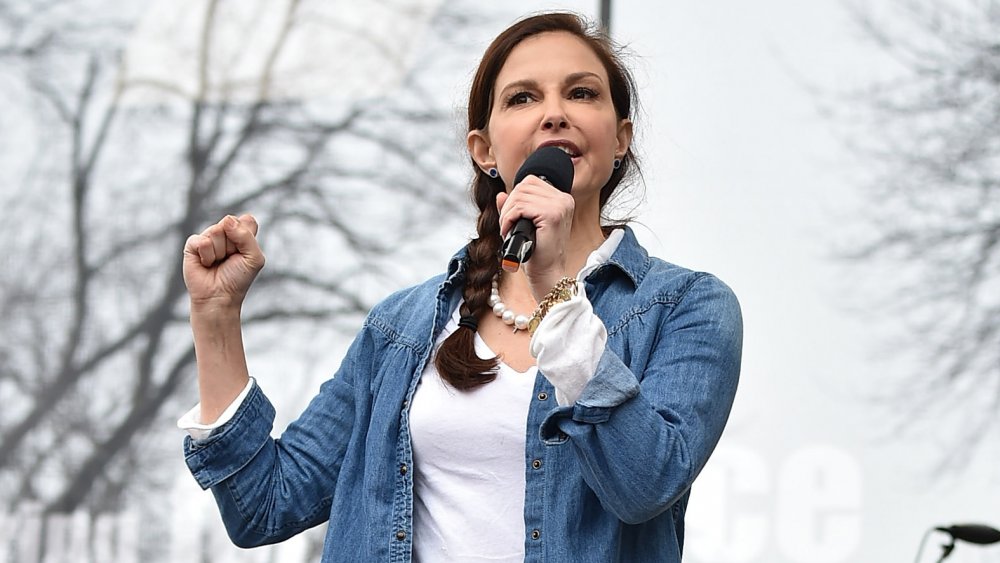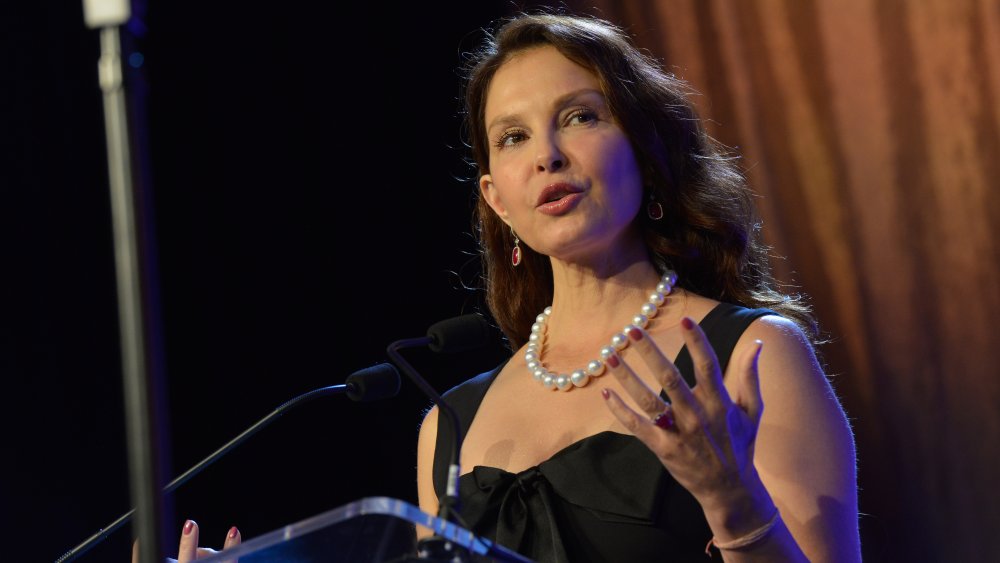Ashley Judd Slams Those Criticizing Her Appearance
American actress and political activist Ashley Judd is standing up to a virtual Twitter mob who attacked her appearance in an endorsement video for Democratic presidential candidate Elizabeth Warren. Rather than playing politics, hordes of social media users focused instead on criticizing Judd's "puffy" look in the campaign video on Warren's Twitter. Many suggested the actress was "injecting filler" for cosmetic purposes. The blowback even led to #AshleyJudd and #prednisone trending on Twitter.
In an Instagram post, the Someone Like You star said the "misogynistic hullabaloo" was a distraction from her "political speech" and dismissed the influx of jokes and snide remarks. "The misogynistic savages of both sexes have come out," Judd wrote, "as have plenty of folks who empathize and see it for what it is (woman bashing)." She added, "Those of you who are talking about my female appearance, making assessments about my worth and desirability are basing your opinions on wholly gendered norms."
Judd had made it clear that she's done being bullied, and she also shed light on what's really going on with her appearance.
Ashley Judd explained her changing appearance
Ashley Judd responded to the critics who've been picking apart her appearance of late. Is she using Botox? The short answer: yes.
According to her February 2020 Instagram post, Judd suffers from chronic migraines, and her insurance covers Botox injections as a "standard treatment." The American Migraine Foundation confirms that Botox is used by many to treat chronic medical conditions, including migraines. Judd added that her recent weight gain can also be attributed to her most recent siege of migraines. She said the episode lasted a "grueling" four and a half months and led to her neurologist pain specialist banning her from "anything but mild walking exercise."
As for her current health, there is some good news. The actress said her doctor recently gave her the green light to resume exercise. "It has been joyful to resume running, yoga, and vigorous hiking," Judd said, adding that she'd be participating in her "favorite" half-marathon this summer.
The actress and activist even acknowledged her privilege as a cis-white woman, saying that the hate she receives is "pretty generic" compared to that received by figures from minority backgrounds, including women of color and members of the LGBTQIA+ community.
"My earnest wish for all of us," she said, "is that when women speak up and we still get beaten up, speak up anyway."
Ashley Judd is making her mark as an activist
This isn't the first time Ashley Judd has been vocal about social justice and smashing the patriarchy. She's been a vocal leader within the #MeToo movement and one of at least 100 women who've come forward to accuse former media mogul Harvey Weinstein of sexual misconduct. Judd also took part in the historic 2017 Women's March (pictured) to speak out against racism, bigotry, patriarchy, social injustice, and President Donald Trump. The Double Jeopardy actress was hailed as the "breakout star" of the event. According to Business Insider, "Crowds went berserk for the big-screen actress as she waxed poetic in R-rated language on women's rights and the perceived threat the new administration poses to those liberties."
Judd has served as an ambassador for Population Services International, a nonprofit global health organization with programs targeting malaria, child survival, HIV, and reproductive health. The organization named her its 2017 person of the year. She spoke out in support of the International Violence Against Women Act (IVAWA) at Harvard University, and the United Nations Population Fund named her a Goodwill Ambassador for the Empowerment of Adolescent Girls.
Ashley Judd wants to generate a 'new conversation'
Ashley Judd has been pushing back against social constructs of beauty standards for years. In 2012, the actress penned a powerful op-ed in the Daily Beast responding to criticism over her appearance, particularly the perceived changes to her face. She called the attacks "nasty, gendered, and misogynistic" and described the hate as a symptom of a larger problem that "all girls and women in our culture, to a greater or lesser degree, endure every day, in ways both outrageous and subtle."
"The assault on our body image, the hypersexualization of girls and women and subsequent degradation of our sexuality as we walk through the decades, and the general incessant objectification is what this conversation allegedly about my face is really about," she wrote at the time, expressing hope that her thoughts would "generation a new conversation" about social norms and how it encroaches on women's livelihoods.
Unfortunately, Judd's commentary remains relevant to this day, but the actress shows no sign of backing down as she advocates for lasting change.




